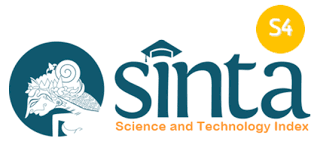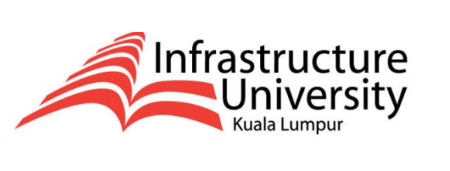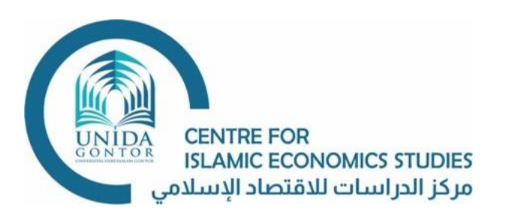The Effect Of Zakat Knowledge and Religiusity on Community Awareness to Paying Zakat for Rice Agriculture (Case Study: Lembah Village, Dolo, Madiun Indonesia)
DOI:
https://doi.org/10.21154/joipad.v1i2.3577Keywords:
Zakat Knowledge, Religiosity, Community Awareness, Zakat For Rice AgricultureAbstract
The population of Lembah Village, Dolopo District, Madiun Regency is 4,006 people, and 1,023 residents work as farmers, and the area of rice fields is 216 Ha. Seeing the extent of available land shows that zakat's potential in the agricultural sector, especially rice in the region, is quite significant. However, the reality in people's lives, especially in Lembah Village, has not been fully implemented to pay zakat on agriculture. It is due to the lack of public knowledge regarding zakat, especially zakat on rice farming. So far, the management of zakat in this sector has not been entirely appropriately managed. The zakat collected so far has not been submitted to an official institution established by the government. So far, zakat payments for agricultural products are only based on public awareness, and it is not uncommon for those who do not pay zakat for agricultural products. This research focuses on the following problems: 1. How does knowledge of zakat affect public awareness in paying zakat on rice farming in Lembah Village? 2. How does religiosity affect public awareness in paying zakat on rice farming in Lembah Village? 3. How is the effect of knowledge of zakat and religiosity simultaneously on public awareness in paying zakat for rice farming in Lembah Village? The research used is quantitative. The population was 1,023, and the sample consisted of 100 farmers in Lembah Village, Dolopo District, using non-probability sampling techniques through purposive sampling. The data collection technique used a questionnaire, while the data analysis used multiple linear analysis. Based on the results of data analysis conducted by researchers, it can be concluded that: Knowledge of zakat has a significant effect on public awareness with a tcount> t-table, 3.278> 1.660 and multiple linear regression of 0.320. Religiosity has no significant effect on public awareness with the value of tcount> t-table, 1.757> 1.660 and multiple linear regression of 0.217. Knowledge of zakat and religiosity together significantly affects public awareness with the value of f count, 11.688> 3.09 and R Square's value of 0.441.
References
Amsal Bakhtiar, Filsafat Ilmu, (Jakarta : PT Raja Grafindo Persada, 2018), 85.
Antonius Atosokhi Gea, dkk, Relasi Dengan Diri Sendiri, (Jakarta : Elek Media Komputindo, 2002), 7.
Departemen Pendidikan dan Kebudayaan Indonesia, Kamus Besar Bahasa Indonesia (KBBI), (Jakarta : Balai Pustaka, 2005), 944.
Departemen Pendidikan Nasional, Kamus Besar Bahasa Indonesia (Jakarta : Balai Pustaka, 2005), 975.
Didin Hafidhuddin, Zakat dalam Perekonomian Modern, (Jakarta: Gema Insani Press, 2002), 7.
--------------- Dokumentasi Desa Lembah Kecamatan Dolopo Kabupaten Madiun, 2020
Fatah Hidayat, Zakat Hasil Pertanian Kontemporer, Jurnal Fikih, No 2 Volume 13, 2015, 51.
http://pusat.baznas.go.id/wpcontent/2016.pdf Di akses pada tanggal 20 November 2019, Pukul 10.23.
J. P. Chalpin, Kamus Lengkap Psikologi, (Jakarta : PT Raja Grafindo Persada, 2002), 450.
Magfira dan Thamrin Logawali, Community awareness Dalam Melakukan Pembayaran Zakat Pertanian Padi Di Desa Bontomacinna Kec. Gantarang Kabupaten Bulukumba, Jurnal Fakultas Ekonomi dan Bisnis Islam UIN Alauddin Makassar, Volume 5, Nomor 1, 2017.
Magfira dan Thamrin Logawali, Community awareness Dalam Melakukan Pembayaran Zakat Pertanian Padi Di Desa Bontomacinna Kec. Gantarang Kabupaten Bulukumba, Jurnal Fakultas Ekonomi dan Bisnis Islam UIN Alauddin Makassar, Volume 5, Nomor 1, 2017.
Makmun, Life Skill Personal Self Awereness : Kecakapan Mengenal Diri, (Sleman : Deepublish, 2017), 209.
Malikah, Kesadaran Diri Proses Pembentukan Karakter Islam, Jurnal Al-Ulum Institut Agama Islam Negeri Sultan Amai Gorontalo, Volume 12 Nomor 1, 2013.
Masrur Huda, Syubhat Seputar Zakat, (Solo : Anggota IKAPI Perpustakaan Nasional, 2012), 63.
Mubyarto, Pengantar Ekonomi Pertanian, cet. Ket 4 (Jakarta : Pustaka LP3ES Indonesia, 1995), 12.
Muhammad Iqbal, Reconstruction in Islam, (Jakarta : Tintamas, 1982), 45.
Nanang Martono, Metode Penelitian Kuantitatif, edisi II (cet. VII : Jakarta : Kencana Prenada Media Group, 2014), 17.
Nuruddin Ali, Zakat Sebagai Instrumen Dalam Kebijakan Fiskal, Edisi I (Jakarta : PT Raja Grafindo Persada, 2006), 1.
Robert L. Solso, dkk, Psikologi Kognitif, (Erlangga, 2007), 240.
Saad, Perkelahian Pelajar : Potret Siswa SMU di DKI Jakarta, (Yogyakarta : Galang Press, 2003), 25.
Soerjono Soekanto, Sosiologi Suatu Pengantar, (Jakarta : PT Raja Grafindo Persada, 1995), 162.
Subandi, Psikologi Agama& Kesehatan Mental (Yogyakarta: Pustaka Pelajar, 2013),87
Sudirman Tebba, Sosiologi Hukum Islam (Yogyakarta : UII Press, 2003), 48.
Sugiono, Metode Penelitian Kuantitatif, Kualitatif dan R & D (Bandung: Alfabeta, 2019), 137.
Syofian Siregar, Metode Penelitian Kuantitatif, (Jakarta : Kencana, 2017), 16.
Teza Sintina, Neneng, Nurdin, Pengaruh Pengetahuan dan Kepercayaan Terhadap Minat Masyarakat Membayar Zakat di Sinergi Foundation Kota Bandung, (Prosinding Keuangan dan Perbankan Syariah, 2016), 301.
Tony Wijaya, Analisis Data Penelitian Menggunakan SPSS, (Yogyakarta : Universitas Atma Jaya Yogyakarta), 55.
Wiratna Sujarweni, Metodologi Penelitian Bisnis Dan Ekonomi, (Yogyakarta: PT Pustaka Baru, 2015), 43










